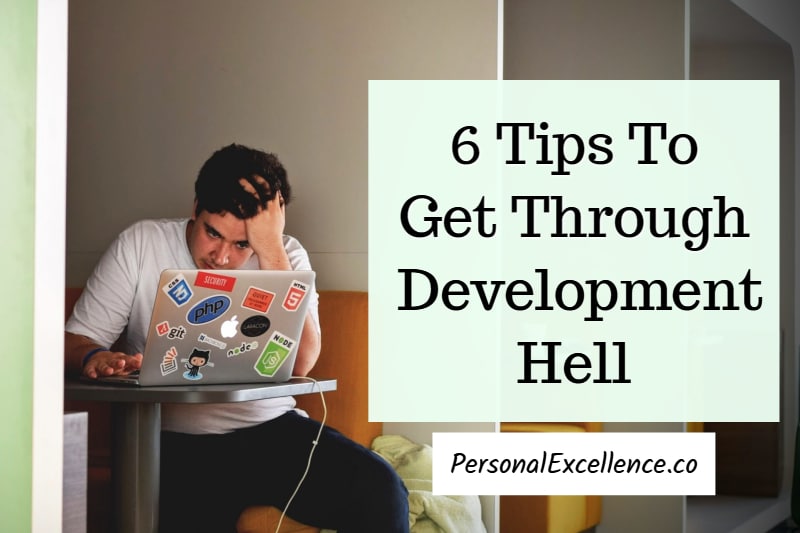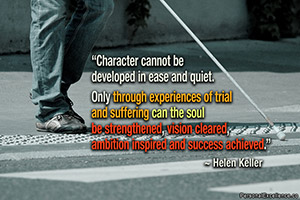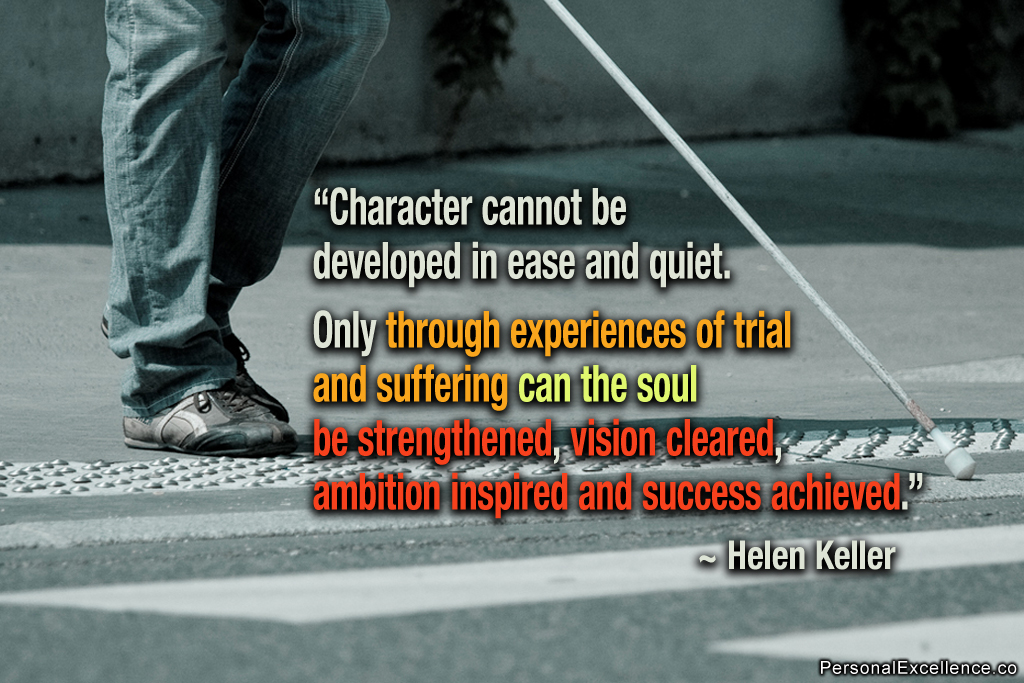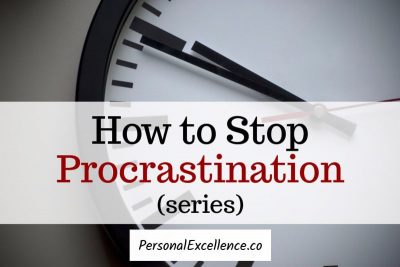
Are you currently stuck in a goal? Do you feel like nothing is moving even though you’ve been spending days and weeks on it?
If so, welcome to development hell. As a writer and content creator, there are often times when I get stuck in development hell. Here are my 6 tips to get through it.
1. Break down the task into small pieces
It’s easy to feel intimidated by a project when it’s a very abstract goal like “to write a book” or “to draw a comic.” I find that it helps to break down the task such that it becomes a series of simple action steps.
So say you are working on a new book. Writing a book may seem like a simple task, but it really isn’t. Start by writing an outline of what you have to do, such as (a) Research on the topic, (b) Plan the book outline, (c) Write a first draft of the introduction chapter, (d) Write a first draft of the first chapter, etc. After you are done, get working on the first section. Focus on this step and nothing else. Don’t worry about the other parts.
If you still find the task intimidating, break it down further. Keep breaking it down until you don’t feel intimidated by the task anymore. Then, focus on the immediate step and don’t worry about other things until this step is completed.
2. Simplify
As a perfectionist, I have a habit of overcomplicating what I need to do. The problem is that when you increase the number of variables in a project by two times, you don’t just increase its complexity by two times — you increase it by an exponential factor. For example, if you’re working on a piece of software with two features, and you decide to add in another two features, the complexity of the project doesn’t just increase by two times — it increases by a greater amount.
Because of that, it’s important to always focus on the essential. Instead of trying to do every single thing, focus on only the things that make the greatest difference.
When I was working on my website redesign last year, I realized that many elements of my old layout required frequent maintenance. Every time I introduce a new feature to the site, something else would break. This is due to the interdependent nature of website elements, particularly WordPress websites and plugins.
I decided to make things simple — create a layout that’s easy to use and cut out everything that is non-essential. I removed the sidebar, switched to a minimalistic look, and removed other “nice to have” elements. I also removed the blog comments and forums which were taking up a lot of my time while adding little value to readers. After a week, I completed the new layout. This simplification means that I now spend much less time maintaining the site.
As much as possible, simplify. Use the 80/20 principle to help you. What are the 20% key tasks that make the biggest difference in your goal? Focus on them and cut away the unimportant stuff. You’ll be amazed at how working on less actually gives you more.
3. Delegate and Get help
Often times we think that we need to do everything alone. You don’t have to. Unless this is a goal that you need to do by yourself, see if you can delegate or ask for help.
For example, online businesses have become incredibly complex in the last few years. While it was possible for me to do everything alone in the past, there are too many moving parts today for me to take care of them alone. After being stuck in development hell for many of my business plans, I realized that I needed to outsource parts of my business to specialized providers, even if I need to pay more. From using specialized shopping cart services to upgrading to a better host to using a third-party course management solution, doing these has freed up significant amounts of my time and worry. Instead of spending countless nights fixing problems, I can now get back to what matters — helping others grow and solve their problems. In fact, I wish I had sought for help right from the start!
If there’s something you are not sure about, ask for help. Consult experts who have achieved the results that you want. Get advice from people with experience in this. Hire someone to help you. There are many free Facebook groups today on all topics imaginable — business, book writing, video creation, training — and many users are helpful in giving advice. Simply search a topic, look for the groups that fit you, and click “Join.” I have learned a lot from just reading people’s comments in Facebook groups. Don’t feel like you need to do this alone, because you are not alone.
4. Get a change in environment
Sometimes if you’ve been stuck for a while, maybe it’s the environment stifling you. Getting a change in environment, talking to different people, and hanging out in different social groups can give you different inspiration.
As a writer, the environment greatly affects me and my writing. I’ve learned, through trial and error, that being in nature greatly fuels my writing, while being in an environment that’s noisy or stifling restricts my thoughts and flow. When I find myself writing, deleting, and rewriting the same thing, it usually means that I need a change in environment, and doing the same thing (trying to push through with my writing despite my lack of inspiration) is just a waste of time.
Similarly, if you are working on a creative project — a drawing, a comic, a book, a course training, web design — get a change of space. Find ways to feel positively inspired. Try a different routine, visit different places, and hang out in a different environment. Do this until you find a space that helps you create quickly and easily, then recreate this in your work/home environment as much as you can.
If you’re suffering from writer’s block, check out my podcast How To Overcome Writer’s Block.
5. Create a first draft
If you’re stuck with too many considerations, create a first draft version first. A first draft is a bare bones version of what you’re trying to create — stripped to the bare essentials. Instead of trying to create a perfect output the first time round which is impossible, aim for a lousy, crappy version.
The way I launched my blog from the start was I simply wrote and posted articles that I felt would change people’s lives. I planned what I was going to write and reviewed my posts before posting anything, but I didn’t spend weeks or months perfecting my work beforehand. When I look back, I cringe at some of my past articles, which is partly why I’ve been revising my old articles in the past 1-2 years. But it’s precisely from allowing myself to post imperfect pieces of work that I could grow and build PE to where it is today. If I kept obsessing over that perfect first article or first 10 articles, I don’t think I would have launched my blog even today.
Let go of the details, and just aim to get a first draft out first. If you’re developing a software, work on a simple prototype first. If you’re writing a book, write the simplest manuscript you can. You can always add the details in the second, third, and fourth iterations.
6. Don’t neglect your health
Last but not least, don’t neglect your health. Maintain a healthy work rhythm, where you have a list of things you don’t compromise on such as your sleep, rest/break times, and meal times. Don’t skip your meals, shower, and sleep even if you feel like it. Don’t work until you feel exhausted — rather, set a clear cutoff, like stopping work at 8pm or 2 hours before you sleep.
This is important because you are the heart and hardware of your project. When you neglect the heart and hardware, you compromise on your project output. While you may feel that you are spending less time on work since you are taking time out for rest and all, after a few weeks you will see that your output starts to change from short-term to long-term focused, and you start to work smarter because you have the mind space to do so.
Why? That’s because work tends to expand to fill the time available for completion (Parkinson’s Law). Allocating an infinite timeline often decreases per hour productivity rather than help you get more done. On the other hand, there are key areas of life — self, rest, relationships — that, when neglected, drains the human psyche.
The proverbial Silicon Valley story that you must plunge your whole life into work, at the expense of self/rest/relationships and to overcome all odds, is overrated. You gain way more in the long run by honoring your personal needs, which interestingly ripples back and increases your output by 10X.
Read:
- The Law of Diminishing Returns: How To Maximize Productivity and Gains
- 8 Habits of Highly Productive People
Check out as well: The Emotional Journey of Creating Anything Great [Infographic]
Update: After posting this article, reader Charles created an amazing infographic of this post. Check it out below, and print it / put it up on your notice board as a reminder of the tips here! :)
![6 Tips To Get Through Development Hell [Infographic]](jpg/infographic-stuck-in-goal.jpg)
(Click image for larger version (Infographic by Charles Cave))






 If you like my articles, join my community of 65,000 readers and get my latest articles delivered to your inbox. Your email is safe. 100% no spam.
If you like my articles, join my community of 65,000 readers and get my latest articles delivered to your inbox. Your email is safe. 100% no spam.
Hello Celestine,
I very much appreciate the content of your website and the tips you gave. I think you are a quite bright, mature and succesfull young lady :)
Just a small feedback for you writing: try to write less and be more to the point. Get rid of the unimportant details which only serves to increases the bulk. That would lead the reader to loose its interest and focus.
I wish you all the luck and success in your journey.
Best
Celes, you’re adorable in your honesty and courage to share your lowest points with the world, with us. Thanks a lot for that, you are a role model, a star. You do not whine and feel sorry for yourself here in your blog, but go about it proactively, positively, showing us how you got through. That’s the point. It’s easy to complain about how difficult life is. It’s admirable to make it through the difficult times, be open to others about this and show HOW you got through. Many thanks, I hope I can have the same level of courage when I get to such a situation.
Send this to George R. R. Martin ;)
I had my own little dev’ment hell during the spring break when I planned to reinstall my OS and to finish a bit of code I was writing for practice. Now I’m done with both tasks but gosh, it took me weeks to even get started! Ironically, completing the first one delayed the second due to issues in installing the necessary programs for #2! (I switched from Windows to Linux which is much trickier to use)
A question for you: how long can a break be before you know you’re just finding excuses to avoid your work?
Hey Jade! I don’t think there’s a set duration, though if you’ve already rested enough such that you feel physically and mentally rested, then it’s probably to get started. If you keep finding reasons to put it off, e.g. “Let me rest a bit more,” “There’s no rush anyway,” or “I want to play more games first,” then probably procrastination is at work. The procrastination article series and course will be helpful to bust procrastination tendencies: https://personalexcellence.co/blog/procrastination/
Just wanted to say all the best. Writing a book can be a big undertaking, especially for you to set a goal for it to supercede everything you’ve done before. Seeing that you’re writing about it, I suppose you have dealt with the biggest issues already. All the best & looking forward to it!
Hey Mikey! Actually I’ve already finished the book as mentioned in the article; it’s just pending editor feedback now. :) I look forward to when it’s out as well!
Thanks you so much for sharing the story, Celes. I can so relate with this! I seem to go through development hell through almost any large, complex or time-consuming project.I experienced this phenomenon in the graduation project I am writing! I recently started a blog and am going through development hell with all the formatting errors in WordPress, focusing on writing on a specific topic only, marketing the blog and working on the design!.. Plus when there are other things to do we so want to jump ship when we enter the development hell phase… I found your tips really helpful especially the ones on talk to someone, practice self-care, one step at a time, and setting a new timeline(Setting a new timeline seems to make a huge difference for me!)… Thanks for the inspiring story and tip!. Celes keep up the good work :)
Thank you so much Jowin! :) Keep this guide close to you whenever you get through development hell phase and apply the tips closely! Self-care is *very* important — so many of us tend to neglect ourselves when busy with work, init? Thank you so much for your kind words and support; they inspire me hugely! :)
Thank you very much for sharing your story, Celes. I guess it would have been easy to sell your absence from, for example, PE in a positive way, but you chose to share your honest experience, and that makes your upcoming book even more authentic. Nobody can live a 100% productive life and by admitting so the tips you share become even more valuable!
Thank you so much for your kind words Dani! :) I hope this story will benefit as many people as possible and remind all of us that at the end of the day, we aren’t alone in our problems. The PE community is always here for each other!
great day celes, i having development hell now working my full time job and do blogging business. and this tip really help me and giving me guidelines to manage my development hell!! thank you very much Celes keep up the good work!!
Thank you for your encouragement Victor!! :) Review the blogging course materials regularly and apply the lessons; they’re going to be essential in the boost in your blog’s growth! :) I had an alumni update me that her blog traffic has been growing well after she applied the tips, and she’s continue to act on more of the advice — couldn’t be happier reading her email!
Alright celes i going to refer back the course again. thank you celes!! :)
I’m grateful that I haven’t yet experienced this, but I think I will go through the same thing when I’ll write my graduation paper because it will be the longest paper I’ve ever written (80-100 pages), plus there will be a lot of research to be done prior to writing. So this article will surely come in handy later on.
I wanted to say something about a line in your article, about how much of your pain was self-created. Generally speaking, I think most pain and suffering is self-inflicted, but once you realize this, you can free yourself from it (just like you did). Maybe this belief is due to my affinity for Buddhist teachings.
Also, that quote from Churchill is one of my favorites. :)
Another well-written, thoughtful article. Thank you, Celes!
Hey Lina, I totally agree that most pain and suffering (if not all) is self-inflicted. Victor Frankl, a Holocaust survivor, said it best with this quote — “Between stimulus and response there is a space. In that space is our power to choose our response. In our response lies our growth and our freedom.” ~ Viktor Frankl (https://personalexcellence.co/quotes/3121). That man underwent tremendous dehumanizing pain in the concentration camps and eventually concluded even in the face of “suffering,” he had the choice to choose whether to feel negative about his experience or make good out of it. He’s a real hero in my eyes.
That’s a great quote I had never heard before. Thank you for sharing!
Whenever I get too involved in something like this, I find it important to take a break. Stepping back usually allows me to look at the big picture and see how much progress I’ve made. If it comes down to it, I can then break up them remaining tasks into baby steps and take it one step at a time. You can do it!!!
I agree on the importance of taking a break; I’d say it’s one of the more important tips out of the list of tips in the guide! By the way, my manuscript is already completed as I mentioned in the article (not sure if you read the whole article or you just posted your comment in response to the title).
Celes, welcome to the the other side of Hell. I have taken many projects through hell and the guide you provide is tops. The only item I might add is to consciously tap your subconcious. It will help you through some of the hottest parts.
Hey John, absolutely agree! Consciously tapping into your subconsciousness is critical especially in creative projects, and it’s pertinent that one practices self-care and is sufficiently rested all the time in order to effectively tap into the subconsciousness. Much of my “breakthrough” ideas usually come when I’m taking breaks, when my subconsciousness is allowed to roam freely since I’m not forcing anything to happen.
development hell: the story of my life :p
as always awesome article !
Thanks madjr! :)
Commenting for this post is closed.